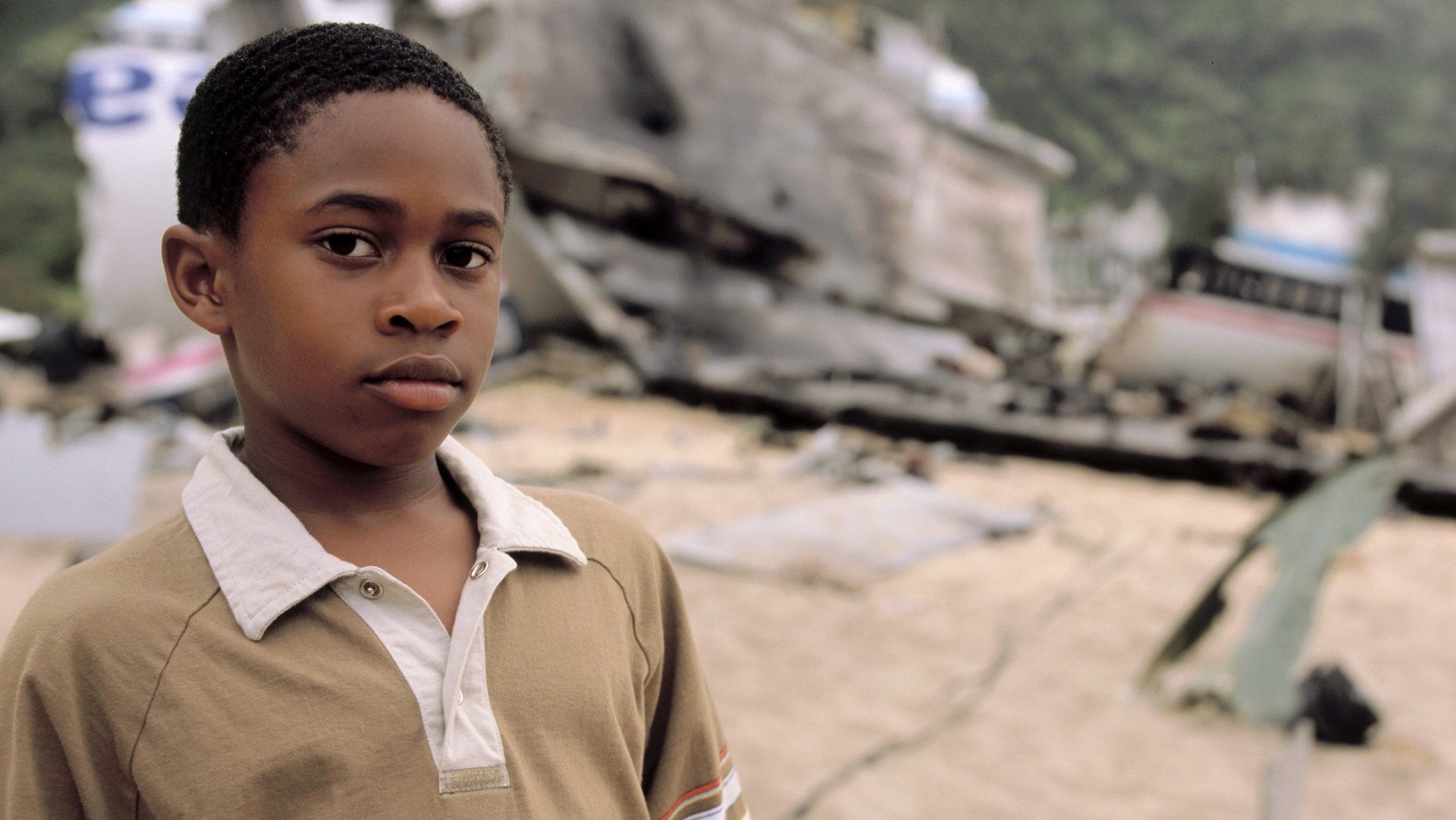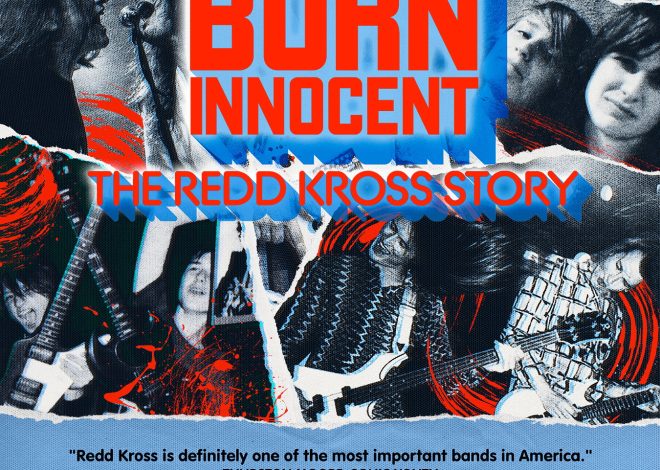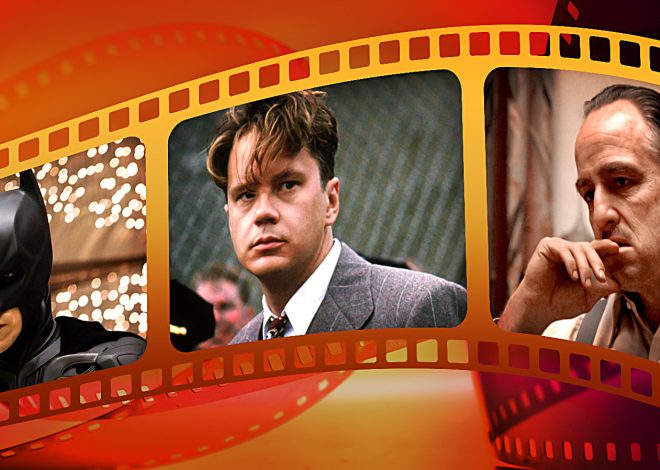
The Lost Showrunners Always Knew They Couldn’t Finish Walt’s Storyline
Although many of us here at /Film insist that “Lost” was far better at answering its many mysteries than it gets credit for, there’s admittedly one loose end that still haunts us 14 years after the series concluded: what was the deal with Walt (Malcolm David Kelley)? Although the kid himself never got his own flashback episode, we saw in his father’s episode (“Special,” season 1, episode 14) that there was something strange going on with him.
“Things happen when he is around,” Michael (Harold Perrineau) is told by Walt’s step-dad Brian. When Walt’s reading a book about birds pre-plane crash, a bird crashes into a nearby window; when he’s reading a book about polar bears post-crash, a polar bear shows up. As showrunner Damon Lindelof would put it in on the season 1 DVD, “Walt is psychic.”
Back during season 1, most fans assumed the show had something planned for this. They figured Walt would turn out to be a major player in the series and have a strong connection to the island like Locke. Instead, Walt was kidnapped at the end of season 1 and kept off-screen throughout most of season 2. He and Michael then leave the island in the season 2 finale; Walt returns for a few brief scenes throughout seasons 3, 4 and 5, but that’s it. By season 6, the show had all but forgotten about him; he and Michael don’t even show up in the afterlife flash-sideways with all the other survivors. So, what gives? Why’d Walt fall out of relevance so suddenly?
The short answer: because Kelley was about to hit puberty
Damon Lindelof explained in a 2014 Vox oral history of the show that hiring a kid so close to puberty, on a series that stuck to a very specific timeline, was a decision that guaranteed a lot of messiness:
“In fact, casting an actor who — I think Malcolm was maybe 12, maybe even 13 when we cast him — was sort of right on the cusp of blooming, we were in dangerous territory. […] The first season was just going to be approximately 30 days, and then the second season was going to start with day 31. There had to be this immediacy of storytelling where you couldn’t really leave them for that long, in order to tell the story. We knew right out of the gate that we were going to have a Walt problem.”
Sure enough, the entirety of seasons 1 through 4 take place within 108 days (September 22, 2004 to January 8, 2005). In the time it took to film them all, Malcolm David Kelley went from a small pre-pubescent child to an unmistakable teenager. Puberty can hit kids hard, but it doesn’t hit that hard within just three and a half months. Today, we joke about the kids on “Stranger Things” growing up way too quickly between seasons, but that’s nothing compared to the mess that “Lost” potentially had on its hands.
“Midway through the first season, Carlton [Cuse] and I and the writers had the idea that in the finale Walt would be abducted by the Others, and that would at the very least accomplish two goals,” Lindelof explained. “Goal number one was, if Malcolm basically had a huge growth spurt over the course of the summer, we’d be insulated. We wouldn’t have to deal with what that character looked like in the season 2 premiere. And then the other issue was, Michael was a hard character to write for in terms of what he wanted, what’s really driving this character. So he would have a Holy Grail quest for the course of the entire second season if his son was abducted.”
Walt’s kidnapping led to a flattening of Michael’s character
Sure enough, that’s exactly what happened. Walt is missing for almost the entirety of season 2, and Michael’s character arc becomes exclusively defined by his quest to get him back. It’s a storyline with a lot of urgency behind it, but also one that makes Michael less interesting overall. It’s a common complaint among the fandom that all Michael does is shout “Walt!” at the top of his lungs, and that’s because early season 2 doesn’t give him a whole to work with beyond that.
It’s frustrating too; season 1 gives Michael a lot of rich, compelling relationships with characters like Sun, Jin, and Locke, whereas season 2 streamlines him into someone who’s only real relationship is with his son. It makes sense for somebody in Michael’s situation to lose all focus on anyone outside of Walt, but that also means that the complicated character work that once made him so compelling is largely thrown out the window.
While Michael spends the beginning of season 2 feeling one-note, he spends the tail end of the season actively alienating the audience. In a surprise twist, he shoots Ana Lucia (who fans admittedly didn’t like much) and then Libby (who fans did, in fact, like and wanted to see more of), and frees the villainous Benjamin Linus from his captivity in the hatch.
It’s all to help get his son back, but it’s still a major point of no return for the character. Even if Michael thought freeing Linus was his only chance of saving Walt, surely there were ways to pull this off that didn’t involve double homicide. It’s a plot point that feels awfully similar to Charlie beating up Sun or Locke casually murdering Naomi in front of everyone, in that it doesn’t seem like the show’s writers properly appreciated how dark the character’s actions are. Michael committing cold-blooded murder may have made for good shock value, but was it really in line with everything we’d learned about the character up to that point?
They successfully averted the awkwardness around Walt’s growth spurt, but then what?
Lindelof continued to explain Michael and Walt’s storyline:
“Then it was like, ‘If we can just get to the end of the second season before Malcolm hits puberty, we can have Michael sell out all the castaways and get Walt back, and then they can just basically leave the Island, they can sail off the Island, and then it’s problem solved.’ And that’s kind of more or less what we executed.”
Lindelof also brought up the three-year time skip that we got with the flash-forwards in season 4, which continued into the present-day plots of seasons 5 and 6. Describing the thought process in the writers’ room throughout this period, Lindelof admitted:
“It was sort of like, ‘No, no, no. You threw a lot of storytelling muscle behind this kid being special. When are we going to get back to that?’ So this idea of, ‘Oh s**t, now it’s only day 45 on the island and now Malcolm has hit puberty and now he is not even on the Island anymore. How are we going to service the story?’ And the answer was we didn’t. Not until the very end anyway. Once the Oceanic Six got off the island, it became easier to manage, because then we had a way of viably explaining how Walt had gotten so much older.”
But even after the three-year time skip, the writers never got back to answering the mysteries around Walt. When the Oceanic Six are trying to return the island, none of them even consider reaching out to Walt and convincing him to get on the plane with them. It makes sense that a teenager would be adjusting to post-Island life much more smoothly than midlife-crisis Jack, but it still feels weird that the show never properly checked in with him. The series could’ve at least let Walt help them in some small way, but no such storyline occurred.
Another culprit for the lack of Walt follow-up: those pesky network execs
When asked about the lack of Walt post-season 2, Lindelof explained that he and co-showrunner Carlton Cuse were suffering from some ABC-induced burnout. The writers were famously frustrated with the network’s refusal to let them agree on an end date for the series. Because they were forced to spend the first half of season 3 writing up “shaggy dog” stories, Lindelof was planning to leave the show.
“We agreed to come back for a third season, and that we would try to hand off the show to a new creative team, or at the very least groom certain writers to basically take over the showrunning duties,” Lindelof said. “In terms of having conversations about how are we going to bring Walt back or how are we going to resolve these mysteries, at that point, that was the lowest creative point on the show for us both emotionally and in terms of what we are putting on the screen, because we were no longer allowed to answer any mysteries.”
We can definitely see this behind-the-scenes exhaustion on-screen; early season 3 is the show at its most plodding. A lot of these episodes aren’t bad exactly — there’s a lot of fun to be had in watching Hurley spend a whole episode figuring out how to jumpstart an old van, or watching Sawyer lose a ping pong bet — but when you were watching weekly in 2007, it was hard not to feel frustrated by how little story progress was being made. As Lindelof put it:
“We were — I don’t know — 50 hours into the show’s run, and with no indication that we would ever be able to let anybody leave the Island or end the show. So our attitude was like, ‘F*** Walt, that’s going to be someone else’s problem.'”
Michael returned, but not Walt
After the infamous backlash to season 3’s “Stranger in a Strange Land,” a joyless filler episode that gave us Jack at his least likable or compelling, Lindelof and the other writers finally reached a deal with ABC. Suddenly, they had an end date for the series planned, which meant they could start moving the plot forward in interesting ways. Taking the characters off the island was suddenly possible, and Walt and Michael could be brought back into the show. But as Lindelof explained, they only wanted one member of the duo to return:
“We had this huge running list of unresolved things on a white board in the writer’s room, and Walt was at the very top of the list. It was like, okay, we’re going to have to resolve this. And our answer for that is that Michael was going to be coming back on this freighter to atone for his fundamental betrayal of these people.”
It’s a disappointing direction to anyone hoping for more Walt lore, and not that great for Michael fans either. Michael’s whole goal in this season 4 storyline is to redeem himself but, even though he saves a few characters’ lives in the finale, the show itself doesn’t consider this good enough for redemption. It’s revealed in season 6 that Michael’s ghost is one of the “whispers” on the island whose soul hasn’t moved on to the afterlife because he himself can’t move on from the crimes he committed.
It’s a dark ending for the character, especially when you consider that there were plenty of other “Lost” characters (Sayid, for instance, who’s killed and tortured countless people) who got to chill out in the church with the other survivors in the finale. It all feels even more mean-spirited when you consider the behind-the-scenes issues between Michael’s actor, Harold Perrineau, and the showrunners. As detailed by Vanity Fair in 2023, Perrineau had some problems with the way the non-white characters were treated over the course of the show, and believed that his departure from the series in season 2 was less an organic writing decision and more a vindictive punishment for Perrineau voicing his concerns about how his character was being written.
His own character aside, Perrineau was simply disappointed with where Walt ended up:
“You know, for me, as a Black person, the idea that Walt winds up living with his grandmother and not living with his father, that feels like one of those clichés — Black kids who have been raised by their grandparents because neither of their parents are around for them. I would’ve liked to have seen something a little better happen, but that’s not the way it went down.”
Another factor in Walt’s lack of return: the flash sideways
When the three-year time gap basically erased the writers’ concerns about the actors’ growth spurt, the lack of follow up on Walt was baffling; with the season 6 flash-sideways, however, it started to make a little more sense. A large portion of the final season centers around an apparent alternate reality where the plane never crashed on the island. All the adult actors could easily pretend to be themselves from the pilot just by fixing their hair a bit, but how could the show possibly grant Walt a flash-sideways storyline given his actor was now in his teens? At this point, the logic from the writers starts to check out. In order to make the flash-sideways work, maybe it really was best to ignore Walt entirely.
When it came to paying off the “psychic” stuff in season 1, “Lost” chose to introduce Miles (Ken Leung) instead. Miles can talk to the dead, so throughout the final few seasons he’s the one with all the weird spiritual stuff going on around him. Miles is also a young character with a troubled relationship with his absent father; although fans often compared him to Sawyer thanks to his standoffish attitude and penchant for nicknames, it often feels like Miles is Walt 2.0. It’s easy to picture an alternate version of season 4 through 6 where an older Walt was written back into the show and played a similar role to the story that Miles ended up with. The show’s creatives would’ve had to change things up a bit to pull it off, but given how time-travel heavy season 5 is, surely they could’ve found a way to do it.
Walt’s final scene (after the series finale)
In a season 6 bonus episode, “The New Man in Charge,” we watch as a post-finale Ben Linus stops by the Santa Rosa Mental Health Institute (the same place where Hurley and Libby once stayed). Linus finds a sad, older Walt playing Connect Four by himself, and he invites him back to the island. He tells Walt that he has “a job to do,” implying that he needs to help his father’s ghos, and also help Hurley run the island now that Jacob and the Man in Black are out of commission. It’s a nice, hopeful scene, even if it does admittedly feel a lot like fan service. But because it’s a bonus scene, most fans don’t even know this interaction exists, so it’s hardly the big payoff that viewers back in season 1 would’ve hoped for.
Still, it’s hard to be too mad at “Lost” for failing Walt, considering that it was easily one of the most ambitious TV series of its time. It was always juggling a solid 20 major characters, not to mention multiple timelines and dozens of minor characters on and off island. Very few shows were trying something this bold in the mid-2000s, so it’s understandable that “Lost” gave us something that wasn’t quite as smooth and polished as later attempts would be. “Lost” may have done Walt (and Michael) dirty, but at least we’ll always have those lovely season 1 episodes with them to enjoy.


